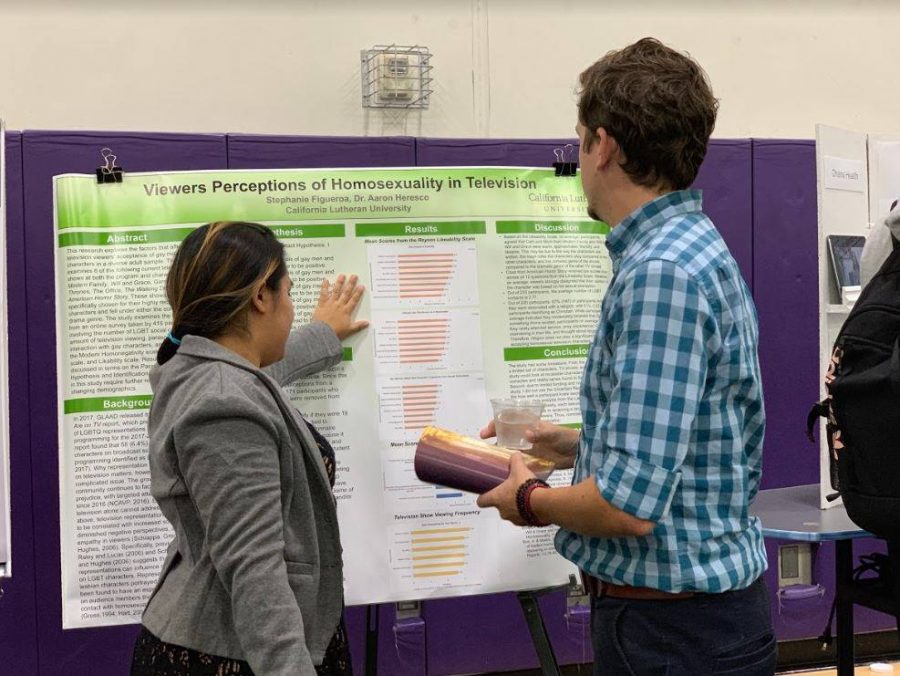TV and Film Emphasis, Stephanie Figueroa Dives into the Industry with Published Research
April 27, 2020
Senior Stephanie Figueroa and Assistant Professor Aaron Heresco’s research, Over the Top: Retransmission Fees and New Commodities in the U.S. Television Industry was published in Volume 29 of Democratic Communiqué this April.
Figueroa has worked with Heresco over the past two summers in research on retransmission revenue in the TV industry. She was offered this research opportunity through the McNair Scholars Program, an initiative that provides students that are underrepresented, low income or first-generation with resources that will help them on their path to attaining doctoral degrees.
By taking part in this research, she was able to acquire knowledge related to the industry she hopes to pursue a career within.
Heresco approached Figueroa with the opportunity to assist with his ongoing research by collecting data and aiding with citations, Figueroa said.
Figueroa said this opportunity fit seamlessly into her schedule as she was participating in an internship with NBCUniversal at the time. When she had the chance to speak with a vice president in the company, she said the terminology she learned through the research allowed her to have a “productive conversation.”
“While I’m not going into the business side of the industry, knowing how retransmission fees work is essential because it affects and influences the decisions made within companies,” Figueroa said.
Their research explores retransmission fees, as one of the hidden issues that are plaguing the TV industry in the U.S.
These fees “are payments from multichannel video programming distributors
(MVPD), such as Comcast, Time Warner, AT&T, etc., to television programmers (e.g. CBS,
ESPN, TNT) for the [exclusive] rights to distribute that programmer’s content on a cable system,” their study said.
These fees have shaped and constrained the current TV industry and it has granted programmers even more control over distribution and provided them with a profitable path forward for capital looking at new monetization strategies of TV content, according to the study.
Figueroa said though initially she found difficulty in the interpretation of data, Heresco was able to assist her in that aspect of the research and she was soon able to spot the effects of retransmission fees in her own life.
Figueroa’s family was subscribed to DishLATINO last year, and Univision, a popular channel among Latino households was “blacked out” due to issues that were a result of retransmission fees, Figueroa said.
Since data on retransmission revenue was collected from TV channels, she was also able to broaden her awareness of the key players in the TV industry, Figueroa said.
Figueroa is specifically interested in pursuing a career in the TV industry and hopes to work in TV development. Through this research she was able to improve both her writing and presentation skills, which will be vital in the development of a new TV show, Figueroa said.
As a result of retransmission fees, Figueroa examined that people who subscribe to cable experience an increase in their bill. She said she hopes the research helps cable subscribers understand how retransmission fees have progressed over time and how it directly affects them today.
“Form friendships and connections with other research students. Even if they aren’t in your discipline, the support goes a long way when presenting your research and traveling to conferences,” Figueroa said.
Research studies such as the one studied by Heresco and Figueroa are accessible to all students at Cal Lutheran and provide the opportunity for students and faculty to gain knowledge in their field.



